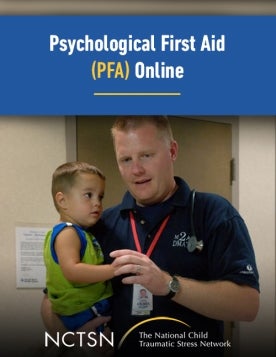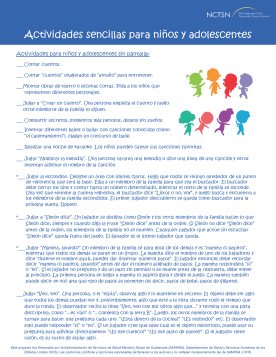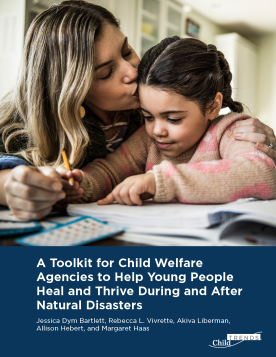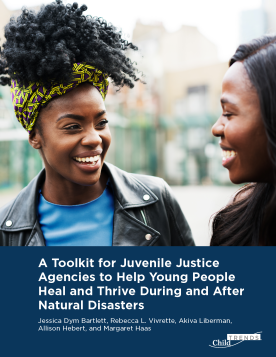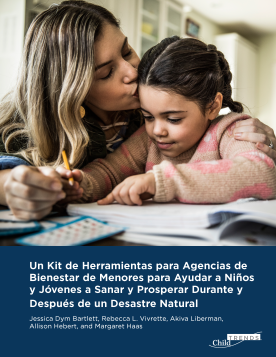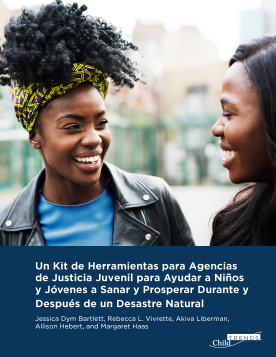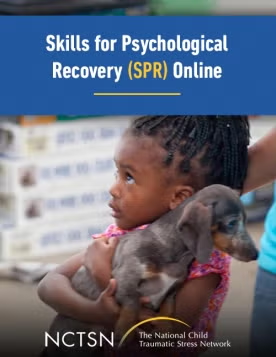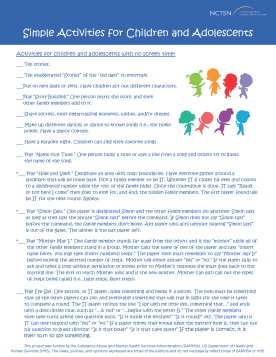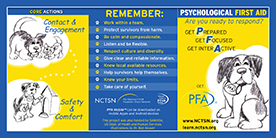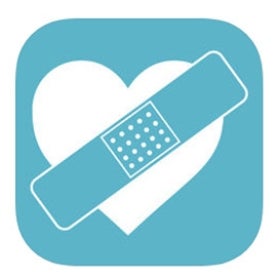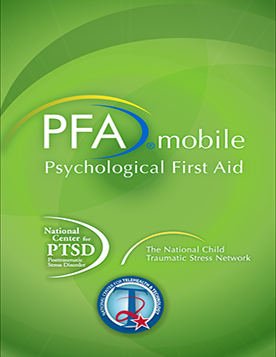An earthquake is a shifting of the earth’s plates, which results in a sudden mild to strong shaking of the ground. The shaking may be sideways, up and down, or wave-like, and can occur over very large regions. Earthquakes can last from a few seconds to several minutes and usually start with a rumbling noise that can be low in volume or as loud as a freight train. Earthquakes occur suddenly and unpredictably. They can happen at any time of the year. Most earthquakes are mild and go unnoticed. However, they can be severe enough to result in extensive damage to communities, including collapsing schools, homes, bridges, dams, highways, and even tall buildings. Earthquakes aftershocks are quakes that take place in the same area as the main quake, and they are common. The frequency of aftershocks depends on the size of the main earthquake. A foreshock is a quake that occurs before a large earthquake.
Being prepared beforehand is the best way to help children and family members recover after an earthquake. Because severe earthquakes are rare, many people may forget about the risk. To improve their preparedness, families should:
- Know their risk. Encourage families to learn if they are living in an earthquake-prone area and get proper earthquake insurance if they do.
- Know where to go in the event of an earthquake. Families should identify the safe place to be in each room at their home, business, and school. This includes against an inside wall or under sturdy furniture. Have them also identify unsafe areas such as near windows, outside doors, outside walls, and things that can fall. Remind them that they need to remain inside until the shaking stops. They should identify two escape routes to the outside once the quake is over. If they are outside, they should remain there but move away from buildings, wires, or objects that can fall. Have them identify a place to reunite as communications may be disrupted.
- Practice responding to an earthquake. Encourage families to practice Drop, Cover, and Hold On to stay safe during an earthquake. They should practice doing these actions at least once a year. Many communities will participate in the Great Shake Out which helps to remind residents that it is time to practice.
- Secure furniture, the water heater, and things that can slide or fall. Encourage families to secure large items that can fall. Also, make sure they know how to turn off all utilities.
- Assemble an emergency supply kit. Families should have access to enough water, food, and other emergency supplies for at least 3 days and medications for at least 7 days. Have them gather copies of important documents, a radio with batteries to get official weather updates, and supplies for pets. Children can also pack their own kits and include their favorite toys. For a checklist of what to include, review the family preparedness plan.
- Make a family communication plan. Families should have important contact information easily accessible and know whom they might contact when they are separated from one another. Babysitters and neighbors should also be aware of their plan. Encourage families to fill out the preparedness wallet card.
- Plan for children’s needs. Encourage parents/caregivers to give children factual information about earthquakes in simple terms. Make sure the children know what to do whether they are at home or at school. Parents can include children in preparedness activities. The mobile app Help Kids Cope provides information on how to talk with children of different developmental levels.
Knowing what to do during an earthquake can help families stay safe. Consider the following:
During an earthquake, families should:
- Drop down onto their hands and knees to avoid falling.
- Cover their heads and necks by going under sturdy furniture and getting away from windows or anything that can fall. If they are outside, stay away from buildings or anything that can fall on them.
- Hold on and stay in their location until the shaking stops.
After the shaking stops, families should:
- Evacuate a damaged building. Families should inspect each room and if there is damage they should evacuate. This includes getting their pets to safety. If it is possible, encourage them to grab important paperwork and their cellphones. Individuals who are trapped, should cover their mouths with their shirts, don’t scream, and tap on a pipe or wall.
- Evaluate for injuries. Parents and caregivers need to check that their families and those around them were not injured. Immediate medical assistance or basic first aid may be needed.
- Access emergency information. Families should check out their community’s official website or social media platforms to get immediate information. They can use their battery-powered radio if the electricity goes out. If they live by a shoreline, they should follow potential tsunami warning orders.
- Reduce potential hazards. Encourage families to be careful when first opening cabinets as objects can fall out. They should wear sturdy shoes, long pants, and gloves to protect themselves against injury. They should inspect outdoor areas before letting children play to make sure there are no downed powerlines or other hazards.
- Expect aftershocks. These can happen at any time and can be scary. They can also cause more damage to a property, so parents/caregivers should reassess whether evacuation is needed after large aftershocks.
- Locate a designated public shelter if needed. Families can text SHELTER and their zip code to 43362 (4FEMA) to find the nearest open shelter. They can also download the American Red Cross Shelter Finder app.
To address children’s reactions immediately after an earthquake, parents and caregivers can:
- Model calm behavior. Children may mirror the reactions of adults around them and will learn ideas for how to take care of themselves from what parents and caregivers do.
- Provide simple but accurate information in a quiet, steady voice. Help them understand that an earthquake happened and that aftershocks are expected. Discuss with them whether the family can live at the house or any plans to relocate. As they begin to see the damage, acknowledge that this is a scary time.
- Encourage comforting or distracting activities. Children may benefit from doing slow breathing to calm their bodies or having a stuffed animal or blanket to hold. As electricity may be out for a long period of time or outside areas may be restricted, children may need help identifying different activities to keep distracted. View these handouts for some ideas.
- Practice their own self-care. Parents and caregivers may benefit from finding opportunities to take a moment for themselves, express their feelings, acknowledge that it is a scary situation, and engage in a coping strategy. Encourage parents to consider how they will cope if they are separated from their children during an earthquake. Remind them to monitor school updates.
Since earthquakes are unexpected and can be very destructive, being in one can be very terrifying. Families can be separated, with hours passing before knowing if their loved ones are safe. If there is a lot of damage, there could be a significant number of people injured or killed. These events can be particularly difficult for those with mobility issues.
People may continue to encounter sights, sounds, smells, sensations, and inner feelings that remind them - even years afterwards - of the earthquake. Common reminders include cracks in the wall, rumbling noises, destroyed buildings, smells of fire and smoke, and aftershocks. Those with the most severe earthquake-related experiences and losses have the most severe and persistent posttraumatic stress and grief reactions.
Other common reactions include:
- There can be widespread separation anxiety in children and adolescents.
- Depression, associated with posttraumatic stress reactions and disruptions to living circumstances, often occurs after major earthquakes.
- Ongoing behavioral changes and physical health complaints can occur, which affects children’s functioning and school performance.
- Children and adolescents can lose trust in the safety and security of the world, and in the ability of adults to protect them.
After an earthquake, most families will recover over time, particularly with the support of family, friends, and organizations. The length of recovery depends, in part, on how frightened people were and the extent of the damage and loss in the community. Children’s functioning and recovery will be influenced by how their parents and caregivers cope after the earthquake. Some families will be able to return to their normal routines rather quickly, while others will have to contend with repairing damage to their home and possessions, finding medical care, moving to a new community, and facing financial hardship. Specialized trauma- or grief-focused mental health services can help children and adolescents recover from the psychological consequences of an earthquake.


